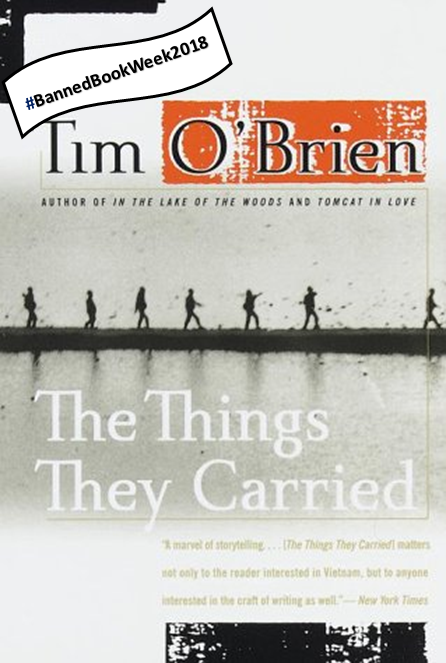 The Things they Carried is an astounding book that leaves no doubt in your mind on the true nature of war. There is no glory and it’s horror has endless depths.
The Things they Carried is an astounding book that leaves no doubt in your mind on the true nature of war. There is no glory and it’s horror has endless depths.
It can’t be an easy thing to write personal war stories – especially painful, gut-wrenching, embarrassing, shameful ones. But that’s what Tim O’Brien does in this semi-autobiographical collection of snippets from Vietnam War. He digs into his war wounds and slices them open and leaves them naked in front of us – wounds festering with blood, pus and dirt.
In The Things They Carried, a collection of incidents in no specific chronology, O’Brien brings to life the men of his unit, their quirks, the tragedies of their meaningless deaths and the burdens they carried, first into the war and then away from it.
It’s hard to put in words how O’Brien does this.
He talks about running away from the war that he did not want to join, he talks about the shame, both of joining the war and of wanting to run away from it.
He talks about the fear that each soldier carried on his back along with several pounds of ammunition on their long endless marches through the swamplands of Vietnam.
He talks about the dying; meaningless, tragic and final, almost comical. Curt Lemon blowing up accidentally on a minefield and his dead remains being peeled of a tree, Ted Lavendar shot in the head as he finishes pissing, Kiowa sinking in a shit field.
He talks about how Rat Kiley’s pretty-in-pink girlfriend learns how to shoot, goes in ambushes, stars wearing human tongues as a necklace and becomes one with the war, lost forever – like the innocence of each man whom O’Brien has known.
He talks about a man who survived the war that followed him home, and that later killed him with a noose around his neck.
Each page is filled with such absolute truth whose knowledge can come only through what O’Brien endured. As you read every line, you want to turn to the next person to you see and make them read it too so that they can understand.
For instance, here is what O’Brien says about a war story ‘… A true war story is never moral. It does not instruct, nor encourage virtue, nor suggest models of proper human behavior, nor restrain men from doing the things men have always done. If a story seems moral, do not believe it. If at the end of a war story you feel uplifted, or if you feel that small bit of rectitude has been salvaged from the larger waste, then you have been made the victim of a very old and terrible lie. There is no rectitude whatsoever. There is no virtue. As a first rule of thumb, you can tell a true war story by its absolute and uncompromising allegiance to obscenity and evil…..’
O’Brien’s writing is sharp with a haunting quality. You don’t know how each paragraph will end. His stories interconnect erratically over the pages and as the picture becomes clearer, the darkness gets murkier. O’Brien writes these stories to keep his memories alive – but there is no catharsis for the trauma of Nam. It will always be present no matter how many stories are told.
For more book reviews, go here
This is my pick for USA, as part of the Around the World in Books reading Challenge



4 comments
I’ve been putting off reading war stories for so long because I was apprehensive about reading the gritty details. So really glad to see your review of this title. Do give Irene Nemirovsky’s Suite Francaise a try.
Yes it’s lying on my bookshelf right now – I will get to it soon. Maybe after a couple of books
Having read Half of a Yellow Sun and now your review of this one, it makes me wonder why we get into Wars such as these.. Its sad to see the tragedies innocent people have to live through in these wars.
Right now I am not sure if I ready for another war story, but will make a note of this as a future read.
Yes there is really never a good reason to start a war. Reading war novels can be depressing to say the least…definitely wait it out